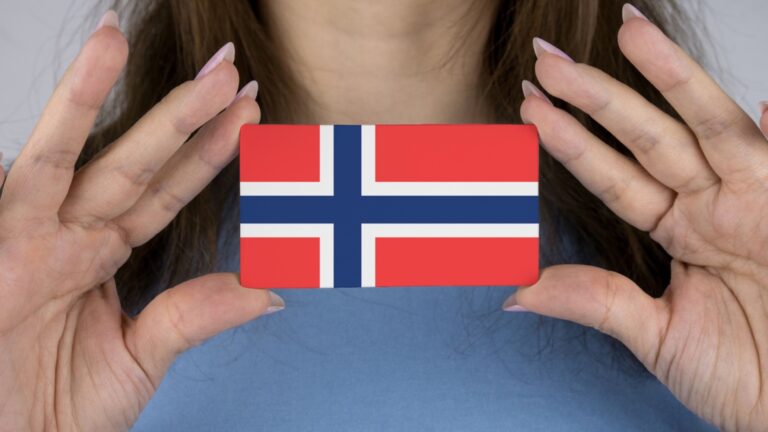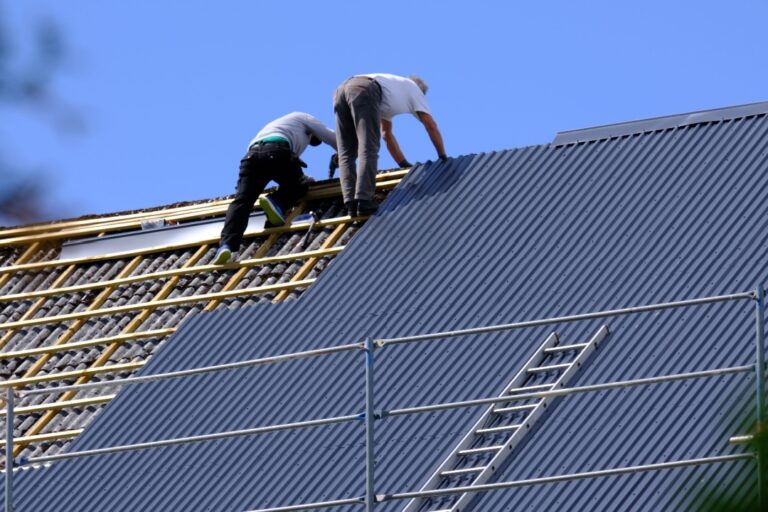Residence permits in Norway are typically tied to a job offer or another reason such as a confirmed university place. But there is another option to consider if you haven’t yet found a job.
From finding somewhere suitable to live to adjusting to a new lifestyle, relocation to Norway presents a whole heap of challenges. Top of that list for many people is the need to find a job first.

If you’re moving to Norway from outside Europe, most people will need to find a job first in order to gain a residence permit. As I’ve written about many times before, this is challenging for several reasons.
One of the biggest reasons is that you’re competing against a large pool of people for jobs. Not just Norwegian citizens, but residents of the entire EU/EEA area. That’s because it’s far easier for an employer to hire someone from within Europe.
Another major challenge is not being present in the country for interviews. Generally, Norwegian employers place strong emphasis on whether a new hire will fit into company culture. It’s difficult for them to assess this without an in-person meeting.
The job-seeker residence permit could help you, but it’s not for everyone. Here’s what the permit offers, who it is designed for, and how to apply for it.
Residence Permit for Skilled Workers
First of all, let me say that I do not work for the Norwegian Directorate of Immigration (UDI). I have put everything I know into this article, so I will not be able to help with any questions. Address any queries to UDI directly. With that in mind, read on!
Norway's immigration system offers several categories of residence permits for non-EU/EEA citizens. Aside from family immigration (used by people intending to live with a partner), the biggest category is work permits.

To apply for a work permit, you must usually have received a job offer first. But if you are a skilled worker, it’s possible to apply for a temporary residence permit in order for you to live in Norway while you look for work.
Those awarded the permit will be able to stay in Norway for up to six months. However, the permit does not entitle the holder to work in Norway at all during this time. If the holder gets a job offer, they can apply for a residence permit as a skilled worker.
Students who have recently graduated in Norway or researchers can also apply for this permit. More on this category of applicant later.
Requirements for a Job-Seeker Visa
It’s important to say that this permit is not given out automatically to everyone who applies. Each case will be individually assessed, so it’s important you easily meet all the requirements. If not, it’s a waste of your time to apply.
Perhaps the most important thing to understand is Norway’s definition of a skilled worker. Norway defines it as someone who has completed vocational training, completed higher education or has special qualifications.
This is a vague definition, for sure. Examples given by UDI include at least three-years professional training as a carpenter or health worker, or a university degree in engineering or nursing. Remember, these are just examples.
There are other significant requirements too. The biggest is the requirement to have almost NOK 150,000 available for living expenses for the duration of the permit. You must show proof that you have this money.

You must hold a passport from a country that has a visa-free travel agreement with Norway. That means if you would have to apply for a visa to visit Norway, you cannot apply for this permit.
Finally, you must pay a non-refundable application fee. At the time of writing, the fee is NOK 6,300.
Job-Seeker Permit for Graduates & Researchers
If you’re coming to the end of a full-time study program in Norway and have a study permit, you are able to apply for a job-seeker permit in order to extend your stay in Norway. You must apply at least one month before your study permit expires.
Researchers holding a residence permit as a ‘researcher with own funds’ can also apply for this permit, but must also do so before the original permit expires.
A key difference is that, unlike regular job-seeker permit holders, graduates and researchers can work (though not as self-employed) while seeking employment as skilled workers. It also lasts for 12 months, not 6 months.
Those applying in this category must be able to demonstrate income of at least NOK 296,550 per year. This money can come from savings and/or income from a part-time or full-time job.
How to Apply for the Job-Seeker Visa
All applications are done via the UDI online application system. Bear in mind that waiting times are lengthy. At the time of writing, processing time can take up to 8 months.

Should you be successful, the time-limit on the permit begins when you enter Norway, not when the permit is granted.
Restrictions with the Job-Seeker Permit
Before you rush in to apply for the job-seeker permit, it’s important to understand all the restrictions.
Unless you are applying as a recent graduate or researcher, you are unable to work legally while in Norway on this permit. If you do get a job offer, you can apply for a skilled worker work permit, but cannot start working until you receive the work permit.
Once the time limit on the job-seeker visa elapses, you must leave Norway. You then have to live outside Norway for one year before applying for the same permit again. However, you could return sooner as a tourist, for example.
Another restriction on the job-seeker permit is that your partner/family cannot apply for a family immigration permit to join you. They would only be able to do so if you find a job and successfully apply for a work permit as a skilled worker.
Coming soon! I have just completed a podcast interview with someone who moved to Norway and successfully found a job by using the job-seeker permit program. The show will be published in the next few weeks, so watch out for it!
Have you used Norway’s residence permit for job-seekers? Please do share your thoughts and experiences down in the comments so others can benefit.



I have tried for the last few years to apply for job in Norway. I am a professor of art history, a photographer and can speak, read and write Norwegian. My mother was 100% Norwegian (from Drammen). I have cousins who live in Norway. Even with all this, I was told to go to the Visa office in Washington DC but after I spent 2 hours waiting – in the end no one could help me. I was directed to the UDI office in Oslo and I did so when I visited later that summer. However, I was told then, that I could only complete the paperwork while I was in the US. I even had an appointment scheduled with the Oslo police to get a background check started but had to cancel. I finally called the Royal Norwegian Consolate General and was told “sorry, you can’t get a visa – whether it is an artist visa, or a residence permit”. So my advice is to get a job first (I have applied for at least 5 jobs I was highly qualified for) or marry a Viking.